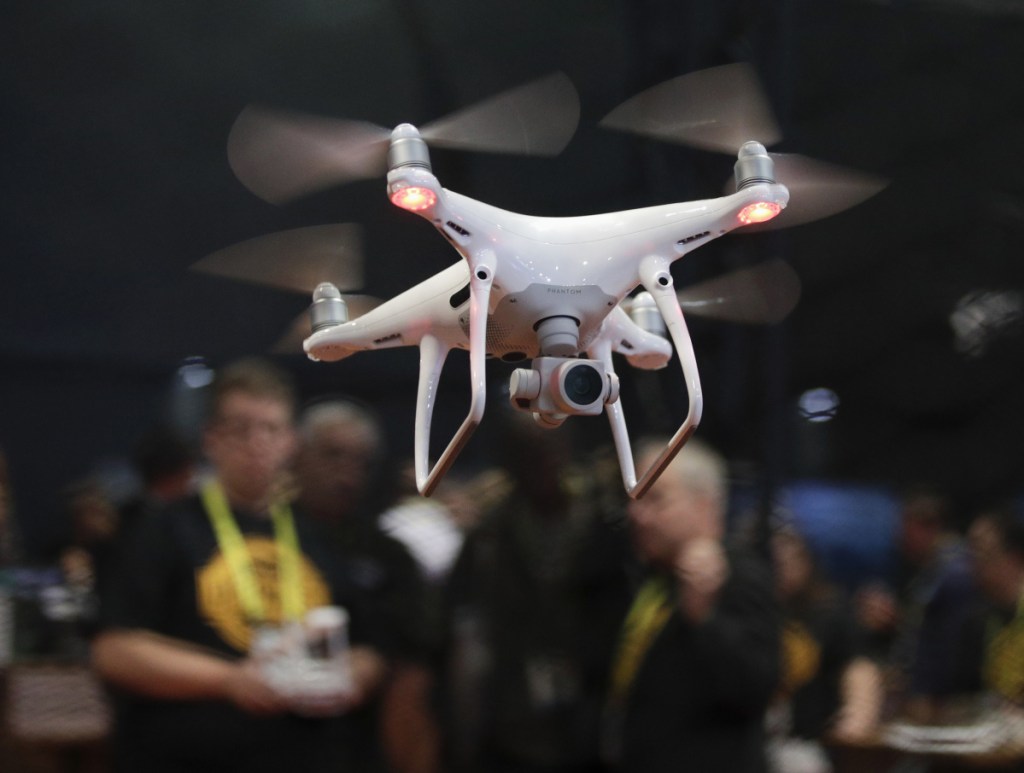WASHINGTON — A bipartisan group of senators introduced a bill Monday that would give the departments of Justice and Homeland Security powers to act against drones deemed a threat, including those at large gatherings in local communities, if federal authorities are invited by a state’s governor or attorney general.
The proposal expands on a request from the Trump administration to, in some cases, free Justice and Homeland Security officials from legal prohibitions on intercepting communications or “sabotaging” aircraft. Those laws were written before drones were as cheap, powerful and commonplace as they are today.
The restrictions have frustrated federal authorities, major league sports officials and others as the number of drones flown over public and private facilities has grown. Last week, the administration backed 10 pilot projects to promote uses for drones, from monitoring crops to delivering packages and emergency defibrillators.
“The threats posed by malicious unmanned aircraft are too great to ignore,” said Sen. Ron Johnson, R-Wis., chairman of the Senate Homeland Security and Governmental Affairs Committee. “It is not enough to just tell drone operators not to fly in certain high-risk areas. We must give federal law enforcement the authority to act if necessary.”
Tracking, interfering with or knocking down drones believed to be a threat would be allowed on a variety of federal missions, including border control; certain Secret Service operations; and the protection of court officers, federal prisons and various other federal facilities.
But in a notable expansion, the Senate bill would, upon request by a governor or attorney general, have DHS or Justice officials provide counter-drone “support to state, local or tribal law enforcement to ensure protection of people and property at mass gatherings, where appropriate and within available resources.” The type of event, location and threat level would be among the considerations.
It would also require DHS to issue an assessment of the threat of drones to critical infrastructure and large hub airports, as well as examine existing federal and local powers.
The Trump administration last year offered a far-reaching counter-drone proposal that would have given new powers to numerous federal agencies, but it was rejected over bipartisan concerns that it was too broad. The Department of Defense has been given some such powers.
Some outside experts have raised possible aviation safety, civil liberties and other concerns to significantly expanding counter-drone powers, depending on how it is done.
Environmentalists legitimately gathering information about a chemical facility might be thwarted under the proposals or have politically sensitive video footage intercepted, said Laura K. Donohue, director of the Center on National Security and the Law at Georgetown University Law Center.
Representatives of law enforcement have said the legislative proposals do not go far enough. State prisons should get the same counter-drone powers as federal ones, they say.
drones
Copy the Story LinkSend questions/comments to the editors.



Success. Please wait for the page to reload. If the page does not reload within 5 seconds, please refresh the page.
Enter your email and password to access comments.
Hi, to comment on stories you must . This profile is in addition to your subscription and website login.
Already have a commenting profile? .
Invalid username/password.
Please check your email to confirm and complete your registration.
Only subscribers are eligible to post comments. Please subscribe or login first for digital access. Here’s why.
Use the form below to reset your password. When you've submitted your account email, we will send an email with a reset code.